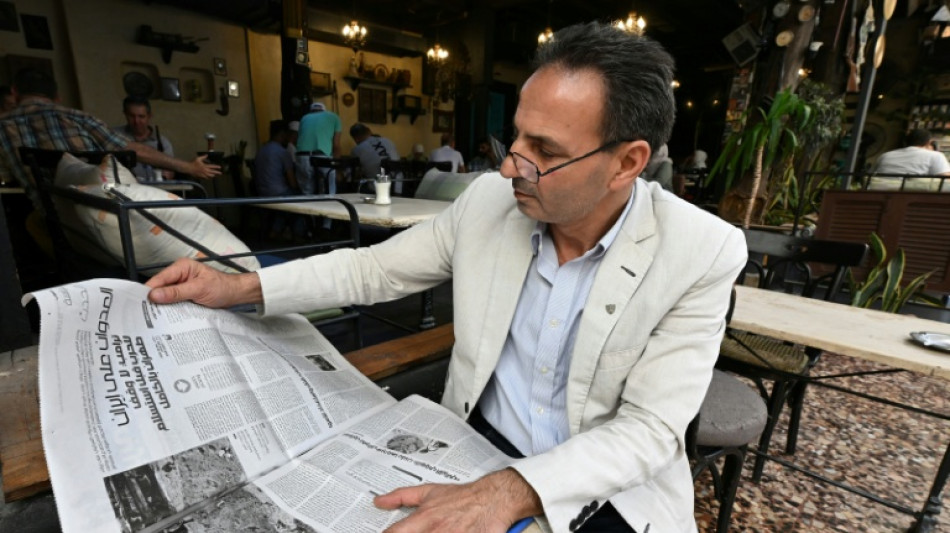
-
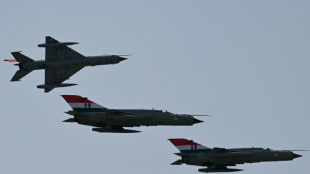 India retires 'flying coffin' Soviet fighter jet after six decades
India retires 'flying coffin' Soviet fighter jet after six decades
-
Erasmus makes late Springboks change as Nche injured

-
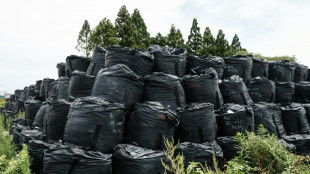 Ukrainian YouTuber arrested in Japan over Fukushima livestream
Ukrainian YouTuber arrested in Japan over Fukushima livestream
-
Foreign doctors in Gaza describe worst wounds 'they've ever seen'
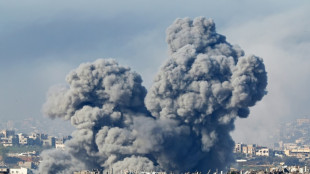
-
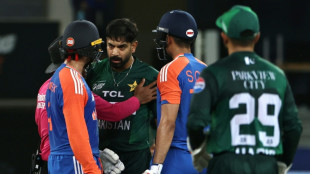 India-Pakistan to clash in first Asia Cup final
India-Pakistan to clash in first Asia Cup final
-
South Asia monsoon: climate change's dangerous impact on lifeline rains

-
 Million-year-old skull could change human evolution timeline
Million-year-old skull could change human evolution timeline
-
Gauff launches China Open title defence in style

-
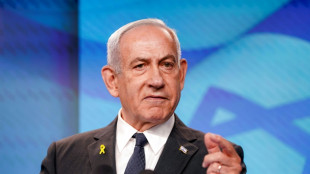 Netanyahu set for defiant UN speech as Trump warns on annexation
Netanyahu set for defiant UN speech as Trump warns on annexation
-
The world's last linen beetling mill eyes strong future
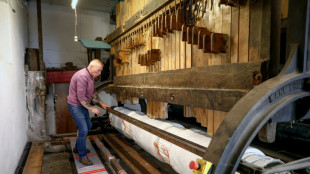
-
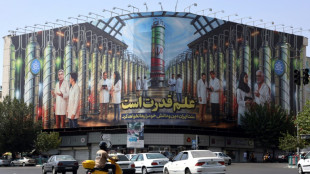 Iran sanctions look set to return after last-ditch UN vote
Iran sanctions look set to return after last-ditch UN vote
-
Poland cools on Ukrainians despite their economic success

-
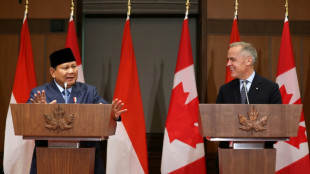 Canada signs free trade agreement with Indonesia
Canada signs free trade agreement with Indonesia
-
Danish airport closes again after suspected new drone sighting

-
 Cheap moonshine kills 11 in Colombia
Cheap moonshine kills 11 in Colombia
-
Quake-hit Myanmar city becomes epicentre of junta election offensive
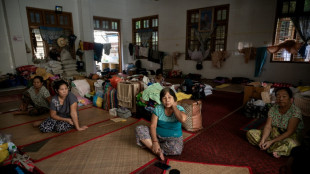
-
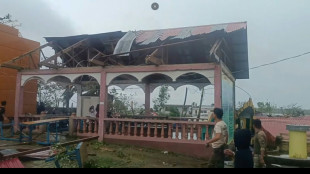 400,000 evacuated, 3 dead as fresh storm batters Philippines
400,000 evacuated, 3 dead as fresh storm batters Philippines
-
In India's Mumbai, the largest slum in Asia is for sale

-
 Red-hot Liverpool face Palace test as Arsenal try to keep pace
Red-hot Liverpool face Palace test as Arsenal try to keep pace
-
Israeli strikes kill 9 in Yemen's rebel-held capital: Huthis
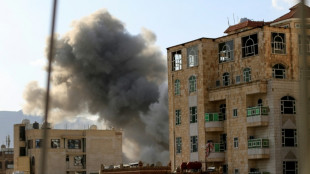
-
 Cardinals agony as Seahawks snatch victory
Cardinals agony as Seahawks snatch victory
-
Cameroon's president Biya: absent candidate in election

-
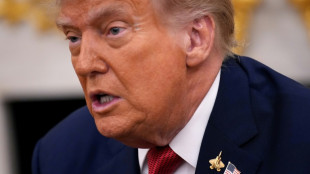 Asian markets drop as US data, new tariff threats dent sentiment
Asian markets drop as US data, new tariff threats dent sentiment
-
Spanish great Busquets to retire after MLS season

-
 Title-chasing Marquez third-fastest in first Japan MotoGP practice
Title-chasing Marquez third-fastest in first Japan MotoGP practice
-
Wallabies primed for "pressure cooker" All Blacks Test

-
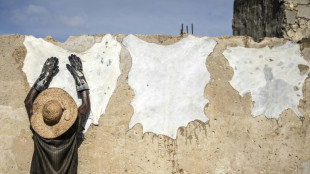 Sought by luxury labels, Nigerian leather reclaims home market
Sought by luxury labels, Nigerian leather reclaims home market
-
Heavy hand: Free-market US tested as Trump takes stakes in private companies

-
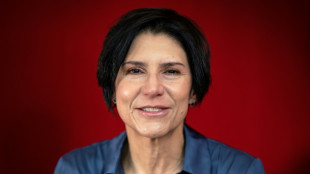 AI has bright future in Latin America, despite training deficit: regional Google chief
AI has bright future in Latin America, despite training deficit: regional Google chief
-
Trump announces steep new tariffs, reviving trade war

-
 Leipzig 'lost our DNA' before Klopp-inspired reboot, says sporting director
Leipzig 'lost our DNA' before Klopp-inspired reboot, says sporting director
-
Simeone's Atletico face early Real reckoning in Madrid derby

-
 New-look Racing keep Fickou's focus from France captaincy
New-look Racing keep Fickou's focus from France captaincy
-
Fiery Ryder Cup start expected with Trump set to attend

-
 Old glories Modric and De Bruyne clash as AC Milan welcome Napoli
Old glories Modric and De Bruyne clash as AC Milan welcome Napoli
-
Thrilling climax looms in shock-riddled Rugby Championship

-
 Pogacar and Prevot-Ferrand primed for Kigali cycling world title challenges
Pogacar and Prevot-Ferrand primed for Kigali cycling world title challenges
-
Kneecap band member due back in UK court over terror charge

-
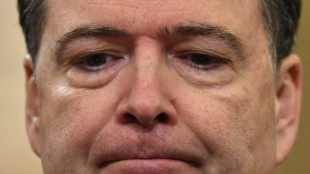 Former FBI director charged as Trump steps up retribution drive
Former FBI director charged as Trump steps up retribution drive
-
England seek end to Women's Rugby World Cup pain as Canada try to 'burst their aura'

-
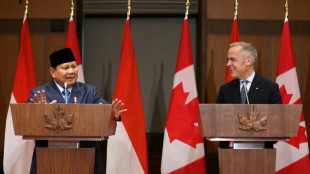 Canada signs historic free trade agreement with Indonesia
Canada signs historic free trade agreement with Indonesia
-
Spending a penny: Uproar over LA plan for $1 mn toilet

-
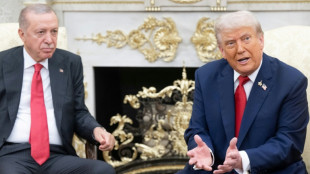 Trump hints at jets for Erdogan if Turkey quits Russian oil
Trump hints at jets for Erdogan if Turkey quits Russian oil
-
Trump allies to control TikTok under new US deal
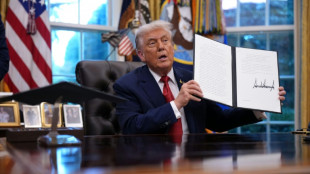
-
 Ohtani bashes 54th homer of season as Dodgers clinch NL West title
Ohtani bashes 54th homer of season as Dodgers clinch NL West title
-
Lakers extend head coach Redick contract

-
 Wrestling legend Lopez calls for Cuban sport to 'open up' to the world
Wrestling legend Lopez calls for Cuban sport to 'open up' to the world
-
Judge endorses Anthropic's $1.5 bn copyright settlement

-
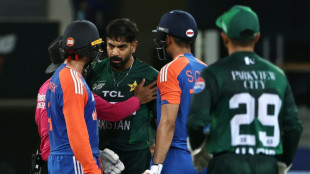 Coach urges Pakistan to 'focus on cricket' for India Asia Cup final
Coach urges Pakistan to 'focus on cricket' for India Asia Cup final
-
Denmark says airport drone flights were 'hybrid attacks'
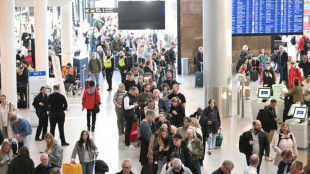
| RBGPF | 1.49% | 76.43 | $ | |
| RYCEF | -0.7% | 15.64 | $ | |
| CMSC | 0.37% | 24.17 | $ | |
| AZN | -2.49% | 73.53 | $ | |
| CMSD | -0.08% | 24.33 | $ | |
| BCC | -1.41% | 76.65 | $ | |
| NGG | -0.89% | 70.52 | $ | |
| GSK | -1.67% | 39.52 | $ | |
| RIO | 2.38% | 65.43 | $ | |
| SCS | 0.12% | 16.7 | $ | |
| RELX | -0.19% | 46.28 | $ | |
| JRI | -0.5% | 13.97 | $ | |
| VOD | -0.53% | 11.27 | $ | |
| BTI | -0.06% | 52.35 | $ | |
| BCE | -0.3% | 23.05 | $ | |
| BP | 0.14% | 35.26 | $ |

Syrians watch Iran-Israel crossfire as government stays silent
For days, Syrians have watched as Iranian missiles and Israeli interceptors light up the skies over their territory, but the new government in Damascus has so far remained officially silent on the unprecedented conflict.
Iran was one of former ruler Bashar al-Assad's biggest backers, playing a crucial role in propping up his government by providing military advisers and the support of affiliated armed groups throughout the 14-year Syrian civil war.
Israel, meanwhile, has occupied the Golan Heights since seizing it from Syria in 1967, and has kept troops in a UN-patrolled buffer zone there since December, when the fall of Assad at the hands of an Islamist-led coalition sparked a wave of Israeli air strikes on military targets.
But despite both countries looming large in Syrian affairs over the years, Damascus -- and everyday Syrians -- appear eager to keep the current crisis at arm's length.
"From my balcony at night, I watch the missiles going towards Israel and the anti-missile systems, and I observe the explosions in the sky," said surgeon Mohammed Khayr al-Jirudi.
"The people are fed up with everything related to killing and destruction, we've had enough. Therefore, we are currently in the position of spectators to both sides, and will not gloat over either of them."
On Friday, Israel launched an unprecedented campaign against Iran, saying it aimed to stop the country from obtaining the nuclear bomb -- an ambition Tehran denies.
Iran has responded with barrages of ballistic missiles targeting Israeli cities, with the exchanges of fire sparking fears of regional spillover.
Unlike most Arab countries, which issued strong condemnations of Israel's strikes, Syria's new government has not commented on the war, potentially signalling a shift in the country's regional posture.
"It is very difficult for us to take a stand," Jirudi said, with many war-weary Syrians seeming to share the government's reluctance.
- 'Both dictatorial systems' -
Sitting with his wife in Damascus' famous Rawda cafe, 42-year-old actor Ahmad Malas said he hoped to "be rid of both the Iranian and Israeli regimes, as they are both dictatorial systems (and) Syrian people have been paying the price for their actions".
However, he added, "I have an emotional connection with the Iranian people, and with the Palestinian people, as their cause has been ours for a long time".
Iran's support for Assad following his violent repression of peaceful protests in 2011 created strong animosity towards Tehran among many Syrians.
Thousands of Iranians left Syria after the fall of Assad, and Tehran's embassy was subjected to looting and vandalism.
The walls surrounding the embassy in Damascus still bear the spray-painted slogans "curse Iran" and "free Iran".
Since becoming Syria's interim president, former rebel leader Ahmed al-Sharaa has repeatedly criticised Iran's role in his country during the civil war, stating that restoring relations with Tehran will require respect for Syria's "sovereignty" and "non-interference" in its affairs.
Iran has said it is "not in a hurry" to establish ties with the new Syrian authorities.
Israel has conducted hundreds of strikes on Syria since Assad's fall, saying it aimed to stop advanced weapons from reaching the new rulers, whom it considers jihadists.
Israeli troops in the UN-patrolled buffer zone between Syria and the Golan Heights have also regularly carried out ground incursions, condemned by Damascus.
Syria admitted to holding indirect talks with Israel seeking de-escalation, and the United States has called for it to normalise ties with its southern neighbour.
- 'Neutrality' -
Amid the breaches of Syria's airspace, at least one civilian has been killed and several others injured by fallen debris from intercepted projectiles.
The Syrian foreign ministry did not respond to a request for comment on the war.
"Damascus adheres to a policy of neutrality... It tries to completely distance itself from the war and any mention of it, because Syria has no interest in getting involved," said Bassam al-Suleiman, a political analyst close to the new authorities.
As the government tries to kickstart post-war economic recovery and reconstruction, Syria's primary battle is "internal", according to Suleiman.
He added that while "both Israel and Iran are a source of danger, we have no stake in this war", which he said Syria should "avoid".
From a rooftop nightclub overlooking Damascus, a 27-year-old doctor who gave her name as Sarah watched the flash of missiles in the sky.
"We try to forget the atmosphere of war by spending time here with friends," she said.
"However, I still fear that some effects of the war will reach us."
P.Vogel--VB
